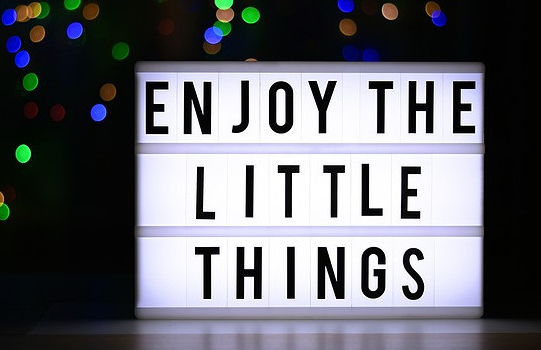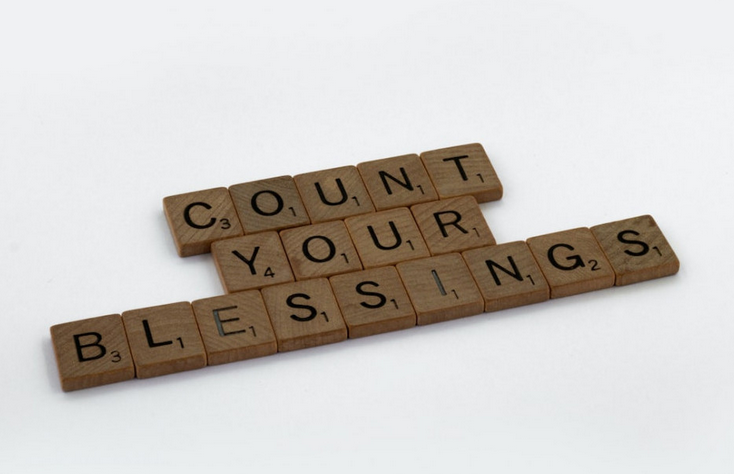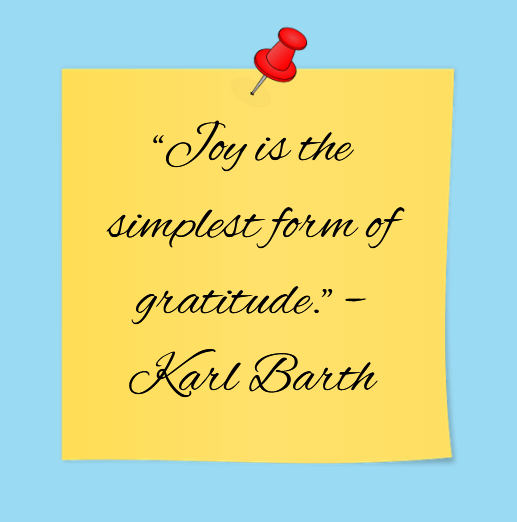Hi! Thank you so much for your insightful comment! I really appreciate your perspective as a mindful educator and meditation…

How Having A Grateful Mindset Makes Your Life Better
“A grateful mindset can set you free from the prison of disempowerment and the shackles of misery.” – Steve Maraboli.
A grateful mindset plays a key role in appreciating and expressing gratitude for what you have.
Gratitude is an emotion that makes a person happy. It is a natural feeling, but studies continually prove its value as a practice. According to research, people can purposefully cultivate gratitude for loved ones, coworkers, animals, nature, and life. The emotion creates a positive environment that extends both inward and outward. This article will present you with a summary of how having a grateful mindset makes your life better.
What Is A Grateful Mindset?
“Gratitude is when memory is stored in the heart and not in the mind.” – Lionel Hampton

A grateful mindset is a way of thinking that prioritizes acknowledging and appreciating one’s life’s positive aspects. It involves intentionally focusing on what one has rather than what one lacks, as well as finding gratitude in the present moment.
A grateful mindset can help people develop a more positive outlook on life. It is associated with various benefits such as better mental health, relationships, and physical health. Cultivating a grateful mindset requires deliberate effort, such as gratitude journaling, meditation, or mindfulness techniques.
People can shift their perspectives and develop a more positive mindset by intentionally reflecting on what they are grateful for. Even in times of difficulty, this can help people feel more content and happy with their lives.
According to research, practicing gratitude regularly can result in various benefits. This includes increased happiness and well-being, better sleep, and reduced stress. Also includes physical health benefits like lower blood pressure and reduced inflammation. People may enjoy these benefits and improve their overall quality of life by cultivating a grateful mindset.
Is Gratitude A Skill You Can Develop?
“Train yourself never to put off the word or action for the expression of gratitude.” – Albert Schweitzer

Because it involves intentional cognitive processes that you can strengthen through practice, gratitude is a skill you can develop.
Developing gratitude requires repetition, effort, and deliberate practice like any other skill.
People can train their brains to recognize and acknowledge the good in their lives. They can do it more efficiently by focusing on positive experiences and cultivating a sense of appreciation.
The brain is highly adaptable and has the ability to change in response to experiences and behavior. Practicing gratitude on a regular basis can cause changes in neural pathways. That makes it easier to experience positive emotions and perceive things in a positive light.
Gratitude, for example, has been shown to increase activity in the prefrontal cortex, a region of the brain associated with positive emotions and social interactions.
Gratitude is also a learned behavior influenced by social and cultural factors. People are more inclined to adopt and incorporate gratitude into their own lives if they surround themselves with people who value and practice gratitude. It can cause a chain reaction in which gratitude becomes a natural and automatic reaction to positive experiences and emotions.
Overall, gratitude is a skill that you can develop with deliberate effort and practice.
People can strengthen their ability to experience gratitude and reap its many benefits by actively focusing on positive experiences and cultivating a sense of appreciation.
How Do You Grow A Grateful Mindset?
“Thankfulness is the beginning of gratitude. Gratitude is the completion of thankfulness. Thankfulness may consist merely of words. Gratitude is shown in acts.” – Henri Frederic Amiel

Growing a grateful mindset involves cultivating an intentional sense of appreciation for the positive aspects of one’s life.
Here are some strategies that may be useful:
Keep a gratitude journal: Try to write four things you’re thankful for daily, regardless of their significance. It can assist you in focusing on the positive aspects of your life and developing a gratitude habit.
Practice mindfulness: Spend a few minutes each day focusing on the present moment and noticing the good in your surroundings. This can assist you in developing a greater appreciation for the present moment and the people and things in your life.
Express gratitude to others: Take the time to thank someone who has helped you or positively impacted your life. This can help you strengthen your relationships and feel more socially connected.
Focus on abundance rather than scarcity: Instead of focusing on your lack, try to appreciate the abundance in your life.
Challenge negative thinking: When negative thoughts arise, try to reconsider them in a more positive light. It can assist you in shifting your perspective and increasing your sense of gratitude.
Create gratitude reminders:

Post reminders of what you’re grateful for around your home or workplace. This can assist you in remaining focused on the positive aspects of your life.
Volunteer or help others: Giving back to others can help you feel grateful for your life’s blessings.
Practice self-compassion: Treat yourself with the same kindness and compassion you would show a good friend. It can help you value and appreciate yourself more.
Be grateful during challenging times: Find something positive or meaningful in difficult situations. It can help you deal with difficult emotions and build resilience.
Surround yourself with positive influences: Spend time with people with a positive outlook on life. They appreciate the good things in their lives. This can reinforce a grateful mindset while also creating a welcoming environment for growth.
You can improve your life by integrating these techniques into your daily routine. Cultivate a more grateful mindset and enjoy the numerous benefits that come with it, including increased happiness, improved relationships, and reduced stress.
How Does Being Grateful Impact A Person’s Own Life?
“Let us rise up and be thankful, for if we didn’t learn a lot today, at least we learned a little, and if we didn’t learn a little, at least we didn’t get sick, and if we got sick, at least we didn’t die; so, let us all be thankful.” – Buddha

Gratitude can have a significant impact on a person’s life in a variety of ways:
Increased happiness: It has been shown that practicing gratitude increases positive emotions and overall happiness. When we concentrate on what we are grateful for, we are more likely to feel joy, contentment, and satisfaction.
Improved relationships: Relationships can be strengthened, and social connections can be increased by expressing gratitude to others. When we express gratitude to the people in our lives, we are more likely to feel closer to them and form stronger bonds with them.
Improved physical health: Gratitude has been linked to improved physical health outcomes such as better sleep, decreased inflammation, and lower blood pressure. This is likely because gratitude can reduce stress and promote relaxation.
Increased resilience: Gratitude can help people cope with difficult situations and boost their resilience.
When we concentrate on the positive aspects of our lives, we can better overcome obstacles and recover from setbacks.
Improved overall well-being:

Being thankful can boost our well-being and quality of life. We are more likely to feel fulfilled, satisfied, and content if we focus on the positive aspects of our lives.
Improves empathy: Gratitude can increase feelings of empathy and compassion for others, which can help us connect with and understand others.
Boosts self-esteem: Gratitude helps people appreciate and value themselves more, increasing self-esteem and confidence.
Reduces stress: Gratitude can help reduce stress and promote relaxation, improving overall health and well-being.
Supports mindfulness: Being grateful encourages us to be more mindful and present in the moment. It can help reduce feelings of anxiety and stress.
Boosts immune function: Gratitude has been linked to improved immune function, which can help protect you from illness and disease.
Being grateful can have a significant positive impact on a person’s life. We can experience increased happiness, better relationships, improved physical health, increased resilience, and overall well-being by incorporating gratitude practices into our daily lives.
In Conclusion
“Gratitude is not only the greatest of virtues but the parent of all others.” – Marcus Tullius Cicero

A grateful mindset is a thought process that focuses on noting the good things in one’s life, no matter how small. It entails focusing on the positive aspects of one’s life rather than dwelling on the negative.
People with a grateful mindset are more optimistic, happier, and less stressed than those who focus on what they don’t have or what’s wrong in their lives.
Journaling, meditation, and other mindfulness techniques can help cultivate a grateful mindset and promote overall well-being.
When you concentrate on the things you are grateful for, you tend to feel happier and more positive. It can help you feel more relaxed and less stressed, which can benefit your mental and physical health.
Gratitude for others can strengthen relationships and increase social connection. It can support you in dealing with difficult situations and increase your resilience. And making overcoming obstacles and recovering from setbacks easier.
Gratitude makes you appreciate and value yourself more, increasing self-esteem and confidence.
Gratitude can improve your ability to connect with and understand others through increasing feelings of empathy and compassion.
A grateful mindset can significantly impact your life, leading to better mental and physical health, stronger relationships, and overall well-being.
Please feel free to leave a comment about the methods you use to practice gratitude and how it has changed your life.
Or if you have more questions or need help, I am always happy to help.
I totally love your site. It does remind you to be grateful for the little things. This is a mindset shift I have been practicing myself recently. I want to attract what I want and not give credence to what I don’t want. This is really well laid out and poised perfectly to attract attention to the next item. What a fantastic job you have done!
Hi!
Thank you so much for giving this positive feedback!
It’s wonderful to hear that the website has influenced your mindset and that you are actively practicing gratitude and manifestation. I appreciate your kind words and am delighted that the content has resonated with you.
I will constantly strive to provide useful and thought-provoking content.
Thank you once more for your input!
MIki
Thank you for this informative post.
Having a grateful mindset and, I believe, an attitude of gratitude is one of the key principles to finding happiness.
Another is a positive, growth mindset.
I like your practical suggestions of using a gratitude journal, meditation, and mindfulness techniques as simple yet practical techniques to begin making positive steps to attain a mindset that recognizes gratefulness as a pillar of health.
Your post does a good job of bringing the research results into your explanation to help provide clarity and validity to your statements about the benefits of gratefulness.
The overall benefits of gratitude seem remarkable and are definitely worth taking seriously to ensure we improve our mindset and become more grateful person. Thanks for your insightful and helpful post.
Hi Dale!
Thank you for reading the post and for sharing your thoughts! It’s wonderful to hear that you found the information informative and helpful.
Developing a grateful mindset can be a powerful tool for increasing happiness and well-being. I’m glad you found the practical suggestions helpful and that including research added credibility to the benefits of gratitude.
Thank you once more for your kind words and engagement with the content.
Miki